Panasonic Lumix S 28-200mm F4-7.1 Macro OIS review: the travel lens that puts the "super" in super-zoom
Panasonic Lumix S 28-200mm F4-7.1 Macro OIS: Two-minute review
It has been said in the past that the selection of lenses for the L-Mount is too limited, however that can no longer be argued. Alongside the wide range of prime lenses, macro lenses, and high-performance zooms, there have been some key releases that have solved a real-world problem for everyday photographers. The Panasonic 28-200mm f/4-7.1 Macro OIS is just such a lens: it has come in as an answer to all of the photography enthusiasts and wanderlusters that want one lens that is compact, durable, versatile and affordable.
In all honesty, I have a rather low opinion of super-zooms as I feel they tend to sacrifice everything on the altar of versatility. This lens has somehow avoided that, maintaining impressive sharpness, autofocus performance, stabilization and build quality, despite its huge zoom range and compact size. Instead of sacrificing all of these things, Panasonic made the decision to make one key compromise: the aperture speed.
Type: Zoom
Sensor: Full-frame
Focal length: 28-200mm
Max aperture: f/4-7.1
Minimum focus: 5.5in / 14cm
Filter size: 67mm
Dimensions: 3.0in x 3.7in / 77.3 x 93.4 mm
Weight: 14.6oz / 413g
In a world of lenses like the Sigma 50mm f/1.2, many people will look at the range of f/4-7.1 and dismiss the 28-200mm out of hand, but that would be a mistake. The poor low-light performance is mitigated by the excellent Panasonic camera bodies, which offer Dual Native ISO and internal stabilization that means both photos and videos can be well exposed in low light without the issue of noise creeping in.
The only thing that cannot be overcome is the lack of subject separation at most focal lengths, meaning that this lens will not produce a large amount of bokeh unless you are taking advantage of the compression at 200mm.
So, portrait photographers aside, this lens will cater to a wide range of people, from landscape photographers to travel enthusiasts who don’t want to have to spend $2,000 / £2,000 / AU$3,500 on lenses to get the coverage they need. With dust- and weather-sealing included, there is little reason not to get this lens for your next holiday, and leave the rest at home.
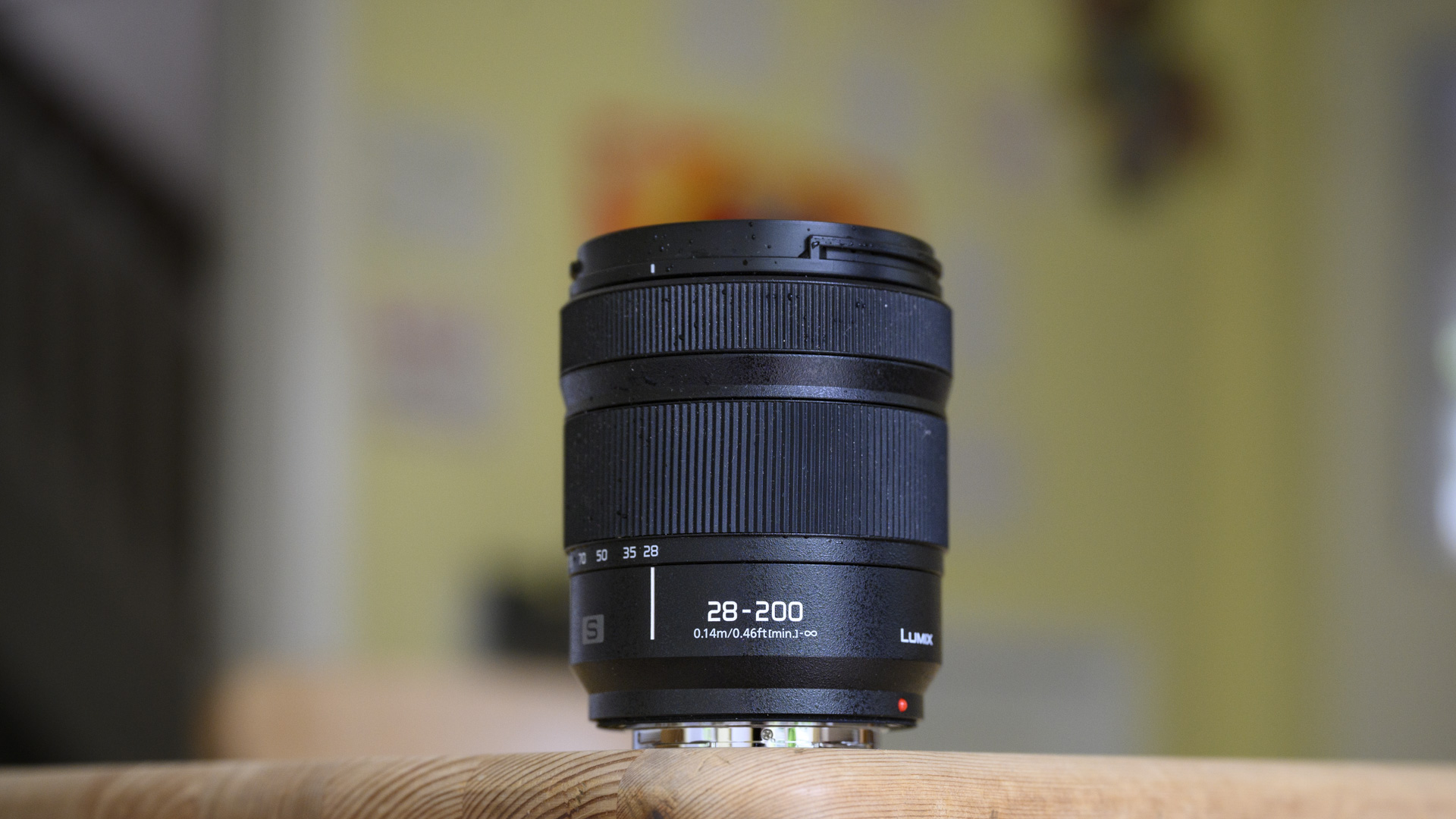
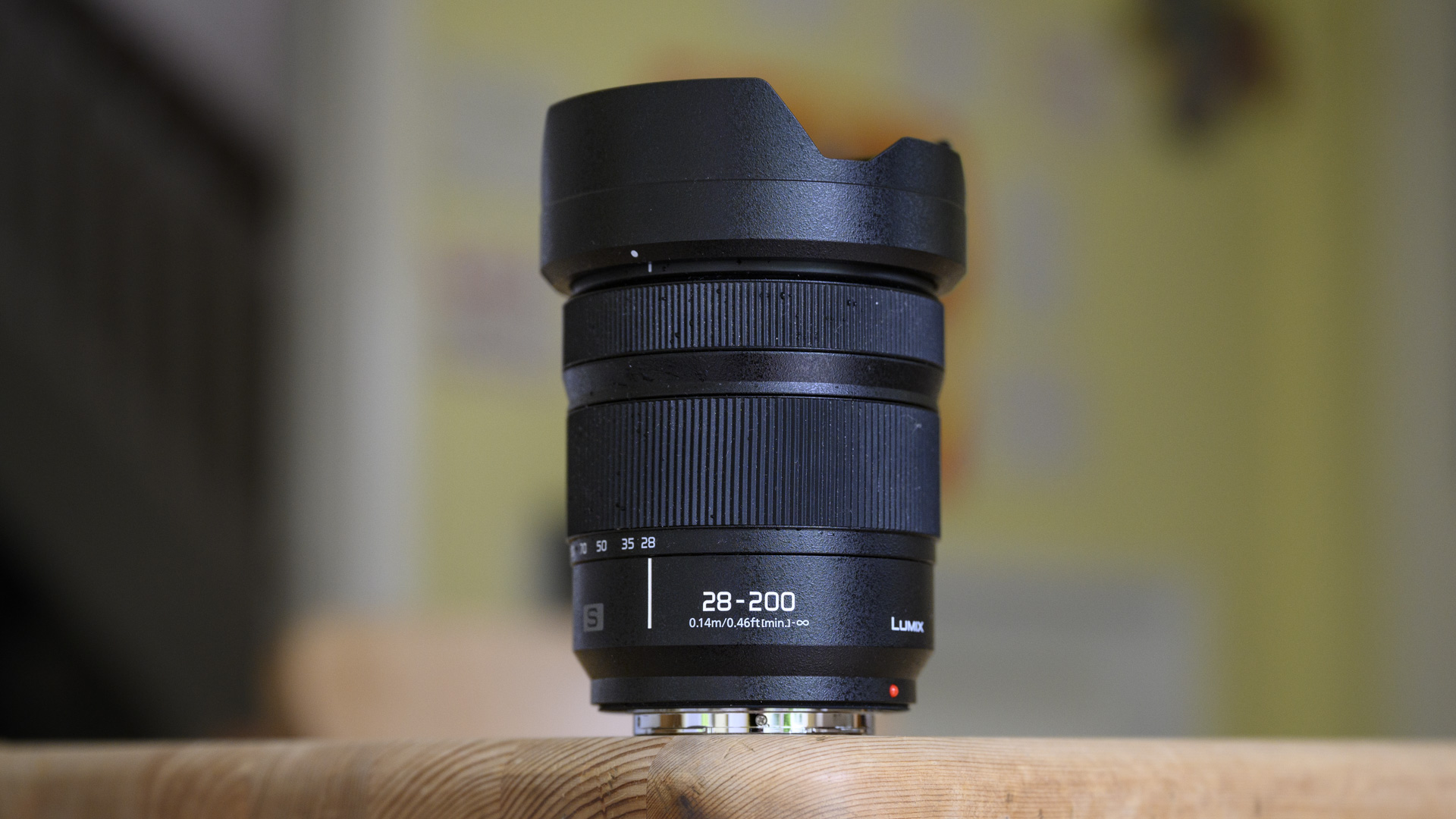
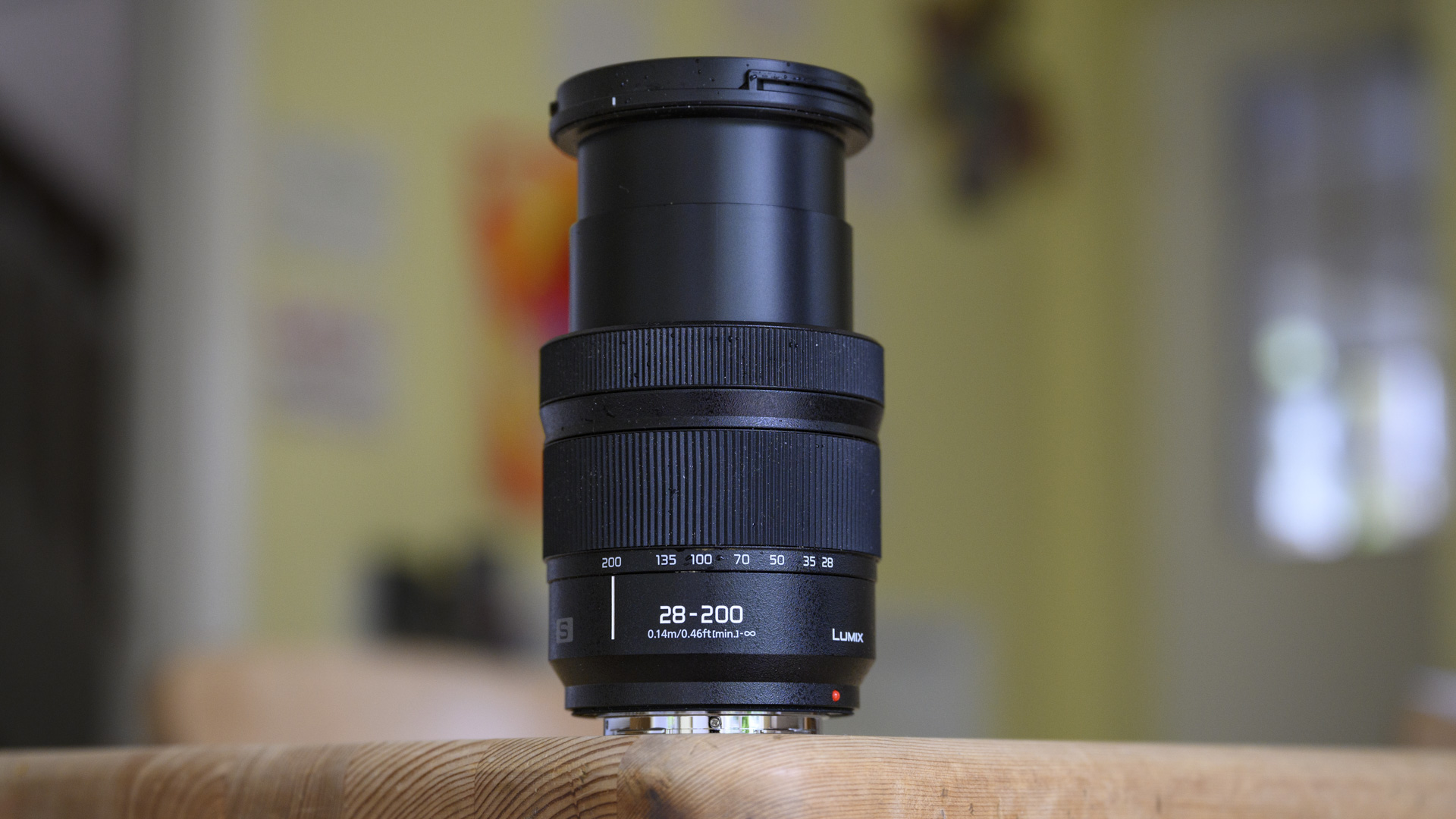
Panasonic Lumix S 28-200mm F4-7.1 Macro OIS: price and availability
- Costs $899 / £899 / AU$1,599
- Available to buy now
- Lens hood is supplied
The Panasonic Lumix S 28-200mm F4-7.1 Macro OIS was announced on March 26 2024, and costs $899 / £899 / AU$1,599 – a reasonable price for such a versatile lens.
There's no real Panasonic alternative that covers both wide and telephoto focal lengths, with the 20-60mm F3.5-5.6 covering the wide to standard end, and the 70-300mm F4.5-5.6 the telephoto end. The 24-105mm is a decent alternative for pros, but it's an altogether proposition, being weightier and pricier.
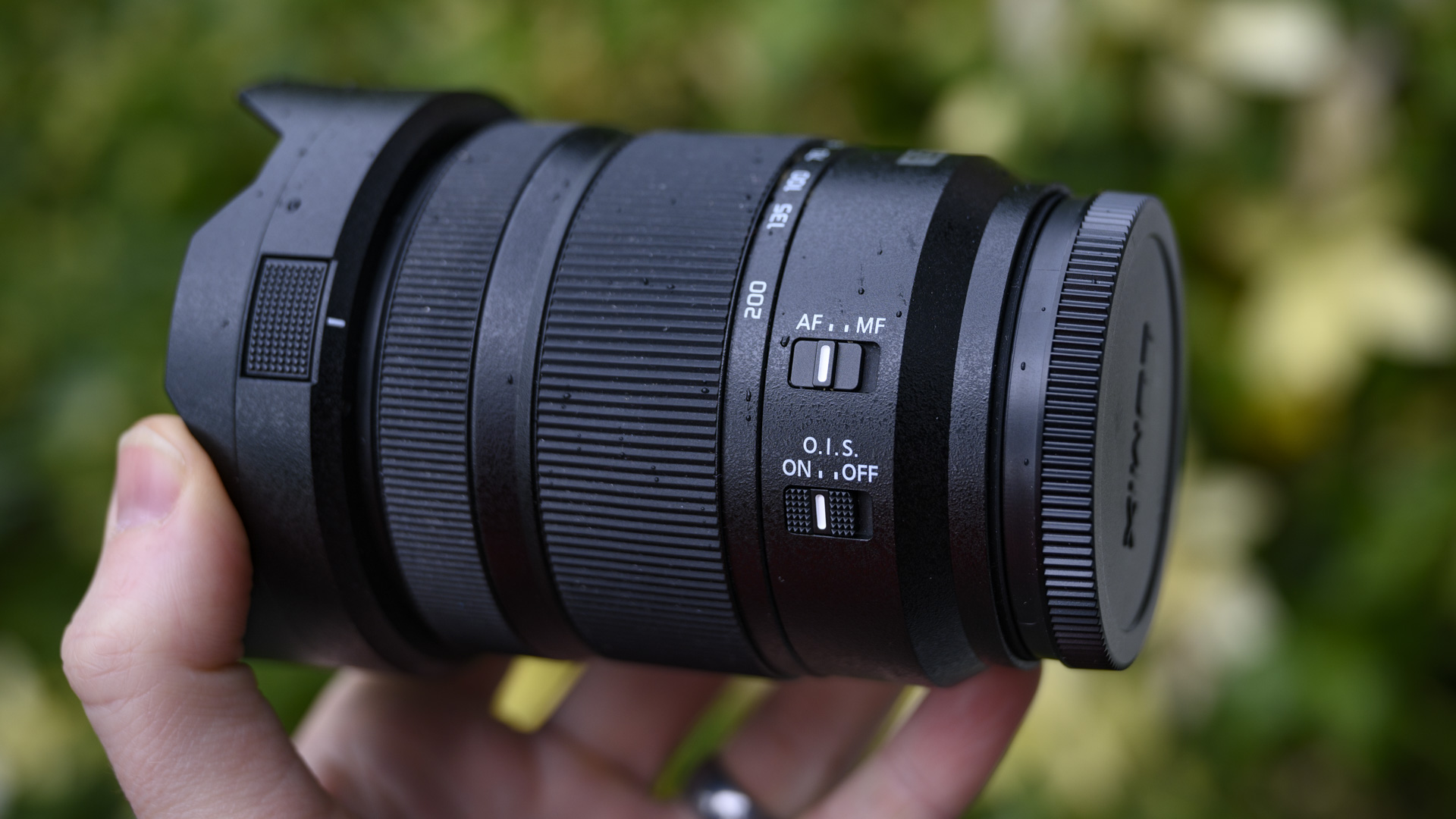
Panasonic Lumix S 28-200mm F4-7.1 Macro OIS: design
- Decent balance with Lumix cameras
- 7x optical zoom
- Optical image stablization included
- Rubber-sealed and weather resistant
The small size and light weight of the Panasonic 28-200mm is immediately noticeable, and it balances very comfortably on cameras like the Panasonic Lumix S5 II. It is primarily a plastic build; however it doesn’t feel cheap or flimsy, with smooth resistance on both the focus and zoom rings.
There are just a couple of switches on the lens, including one for the OIS, which provides an excellent 6.5 stops of stabilization, coupled with an AF - MF selector switch. The metal mount and weather seal further enhance its credentials as a one-and-done travel lens.
I like the fact that the lens is slimmer than many zooms, with just a 67mm front thread, much like my beloved Sigma 28-70mm f/2.8. I find the large diameter of lenses like the Panasonic 24-105mm F4 to be unwieldy and uncomfortable, making you feel like you are carrying a far bulkier setup when travelling. Whipping my Lumix S5 II in and out of my side bag with this lens on was quick and easy, and it encouraged me to take more photos without feeling conspicuous.
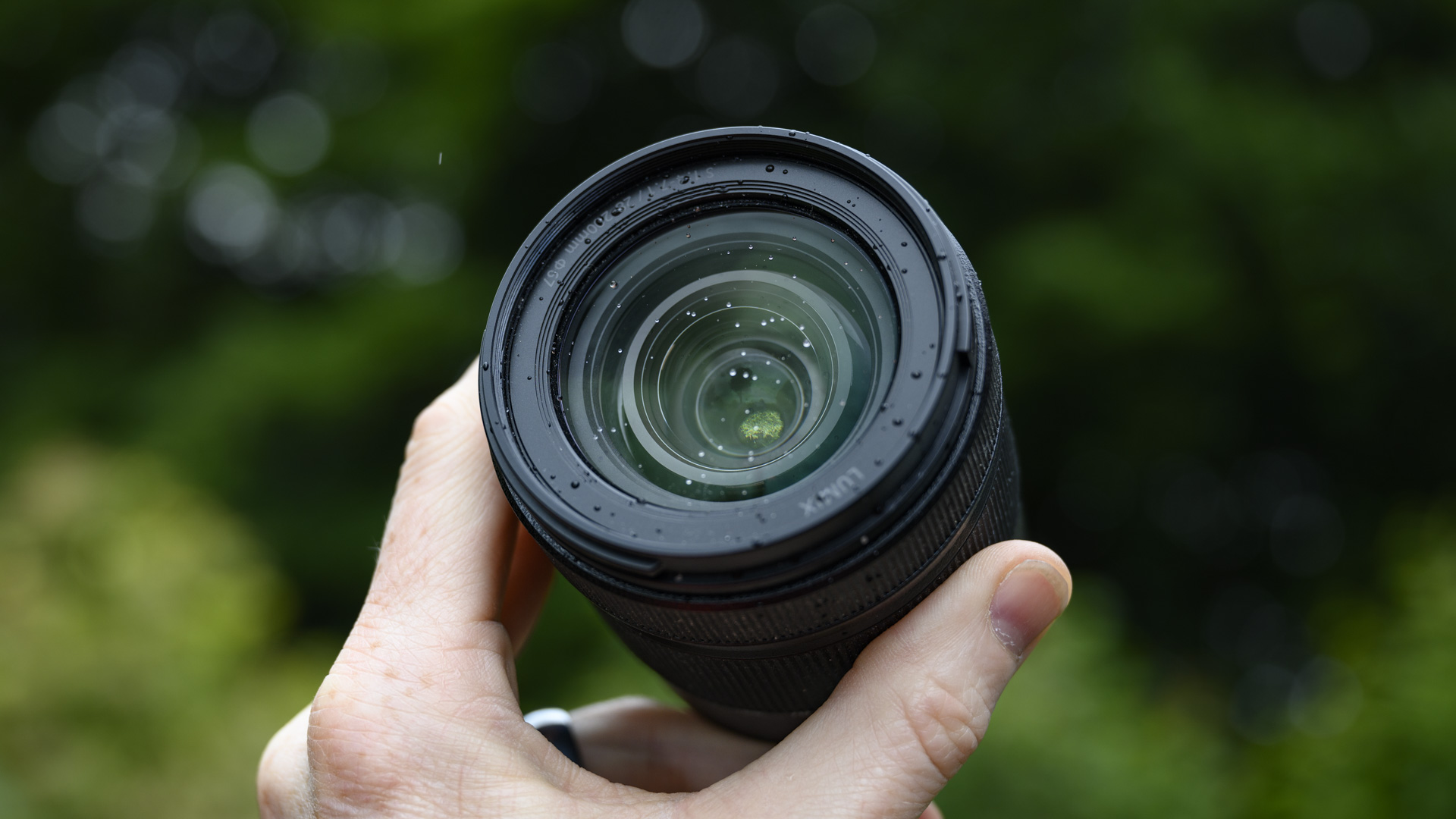
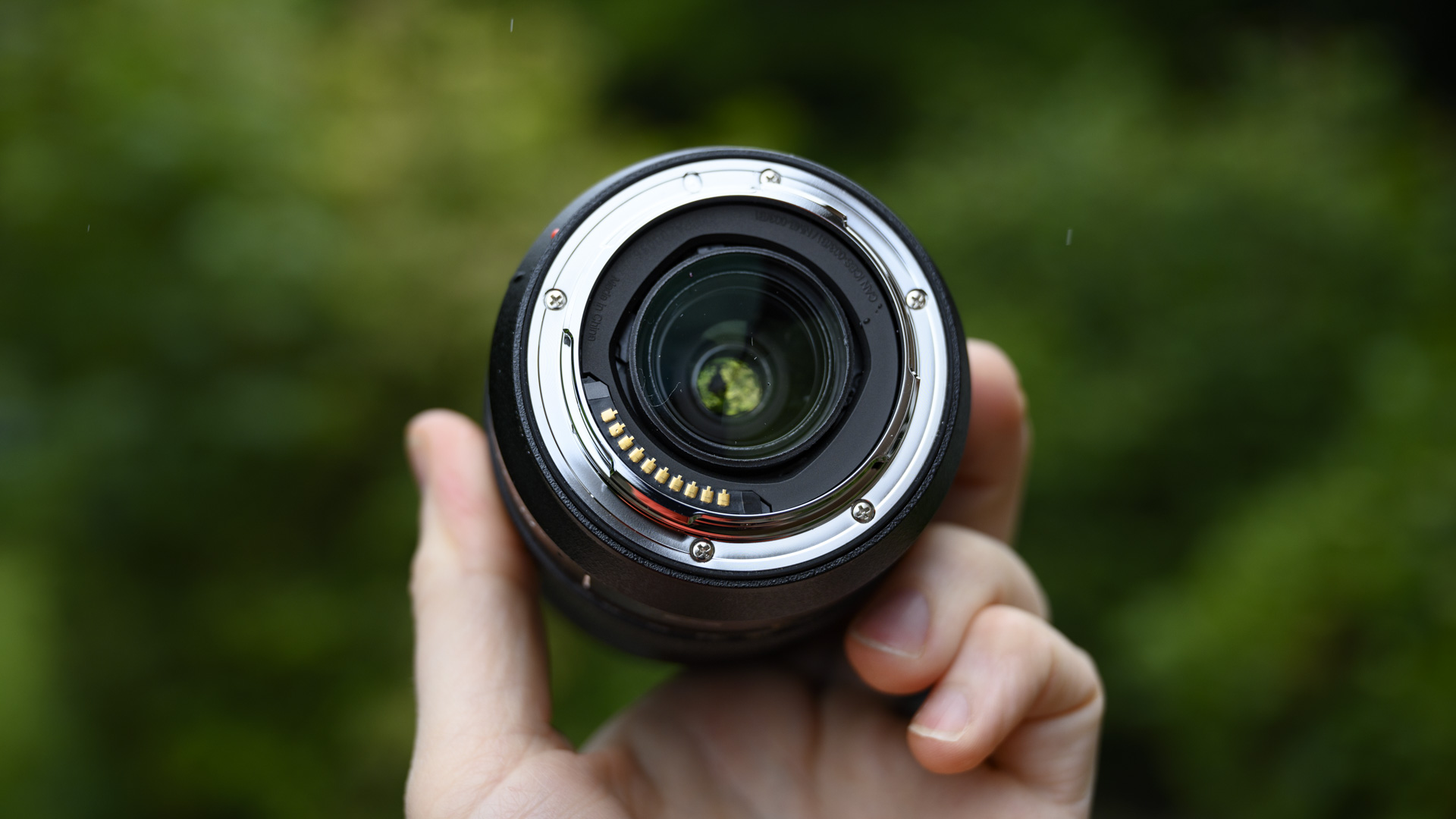
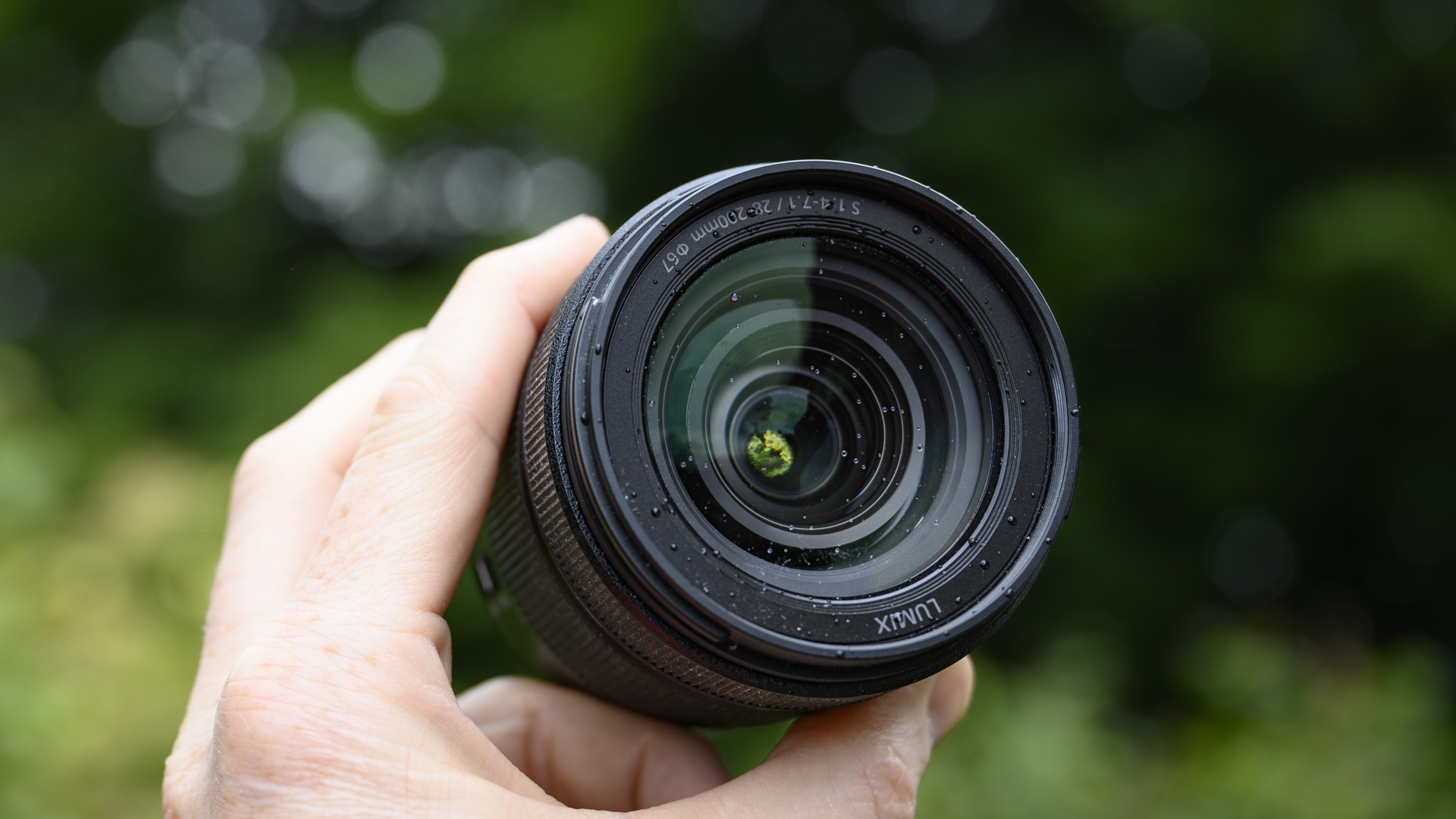
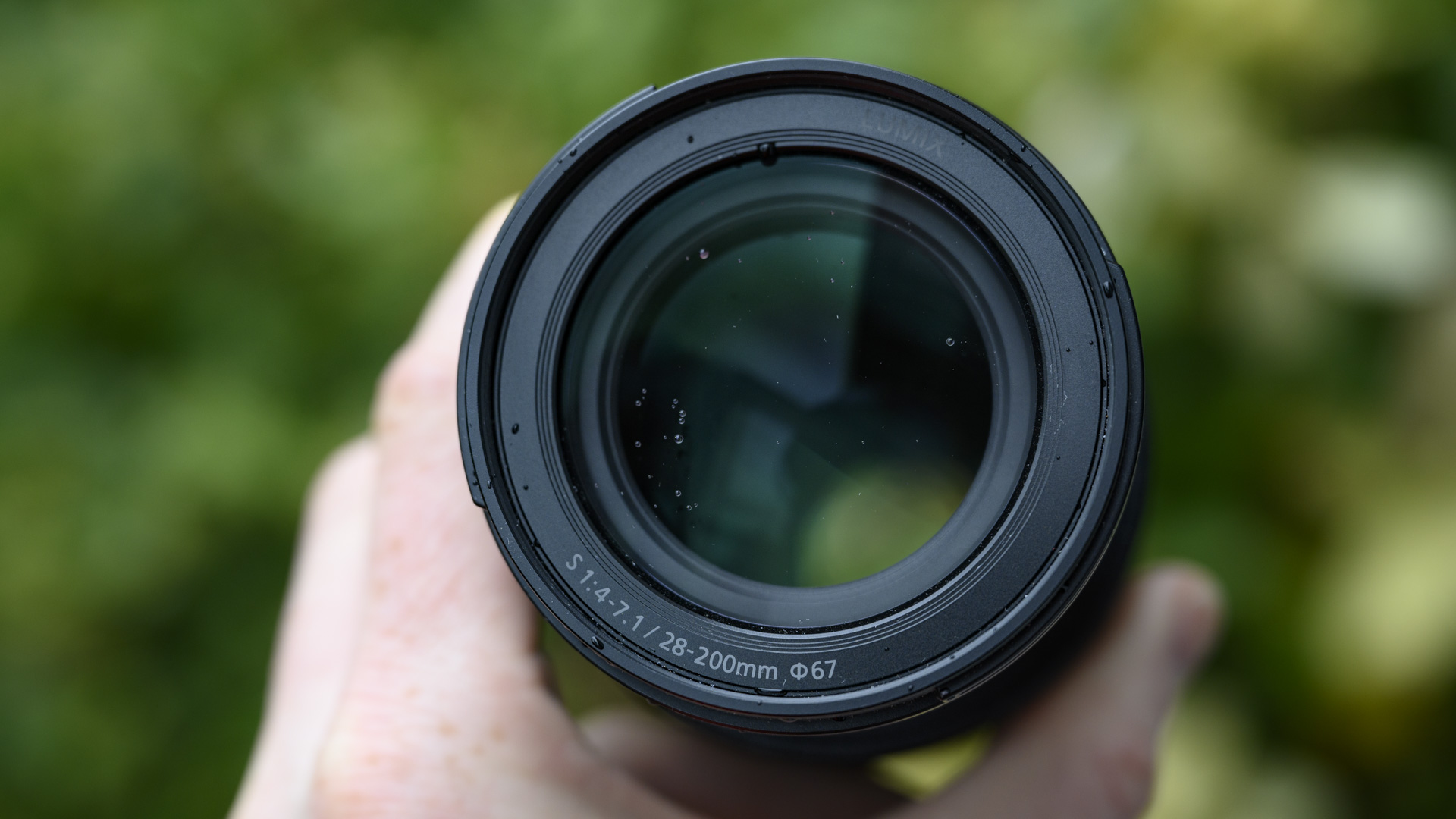
Panasonic Lumix S 28-200mm F4-7.1 Macro OIS: Performance
- Just 14.6oz / 413g
- Impressive closeup photography ability with up to 0.5x magnification
- Moderate flare and ghosting
Panasonic has been clever here: by offering what could be described as an unimpressive aperture range, f/4-7.1, it has allowed the lens to not only be compact, but also sharp and free of most image quality issues.
Professional photographers know that prime lenses are almost always sharper than zooms. However, their f/1.4 or f/1.8 apertures also cause chromatic aberration and fringing, as well as softness in the corners that is expensive to correct for. These are a non-issue with the 28-200mm, as the aperture range allows the lens to remain sharp from corner to corner, with no chromatic aberration or unwanted rendering elements that I could find.
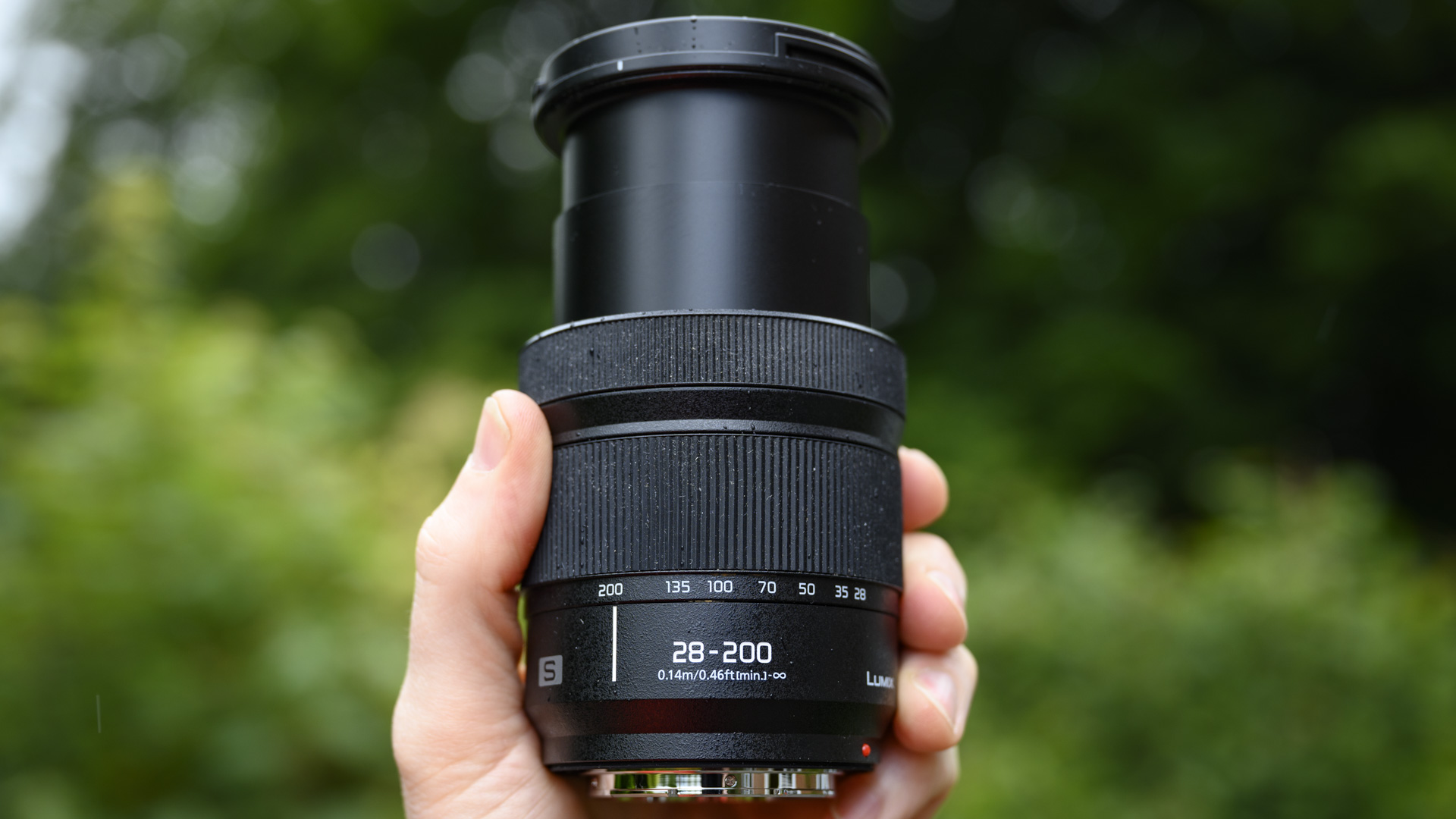
The fact that this lens also offers macro capabilities is remarkable, and I was pretty stunned to see how close I could get to a subject while still being able to focus. At 28mm, I could capture something just 1.2in / 3cm away from the front element, which created sharp images with wonderfully soft out-of-focus areas.
Of course this won’t be the lens for serious macro photographers who need the reproduction ratio of lenses like the Panasonic S 100mm F2.8, but it is a great added feature for those who want one lens to cover all their bases.


Autofocus speed and accuracy has been one of the key upgrades to the newer Panasonic line of cameras, and this lens doesn’t let down the team here either. Although it uses a linear motor, instead of the smoother stepping motors found in some of Panasonic’s other lenses, it snaps to the subject quickly and holds focus very well when zooming in and out.
I did have a few issues with unpleasant flaring and ghosting when shooting into the sun, which is common in super-zooms, so I would make sure to use the included lens hood when in those situations.
Panasonic Lumix S 28-200mm F4-7.1 Macro OIS: sample images







Should I buy the Panasonic Lumix S 28-200mm F4-7.1 Macro OIS?
Buy it if...
Don't buy it if...
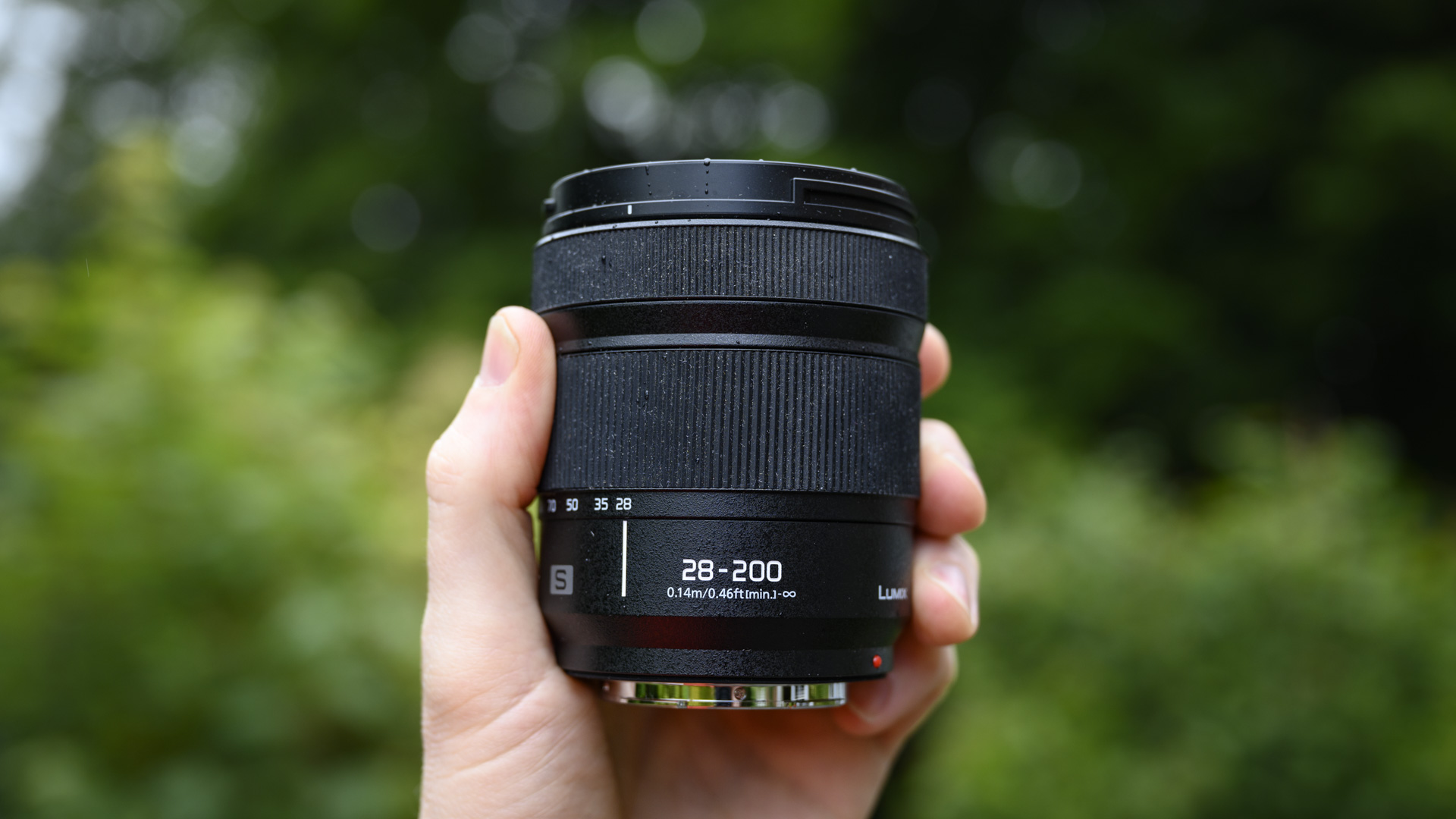
How I tested the Panasonic Lumix S 28-200mm F4-7.1 Macro OIS
- A mixture of landscape, wildlife and portrait photography
- Used in changeable weather
Panasonic was kind enough to let me take this lens around southern Egypt, where I put it through its paces for real-world travel photography on my Lumix S5 II. From the desert to the Nile, it came with me on boats, camels, to the hotel poolside and through the local streets and markets. For the days I was testing it, I didn’t use any other lenses and relied solely on it for all the moments I wanted to capture. While I take care of my kit, I certainly don’t baby it, and I got to test the ruggedness of the lens along with its performance.
- First reviewed in June 2024
0 comments:
Post a Comment